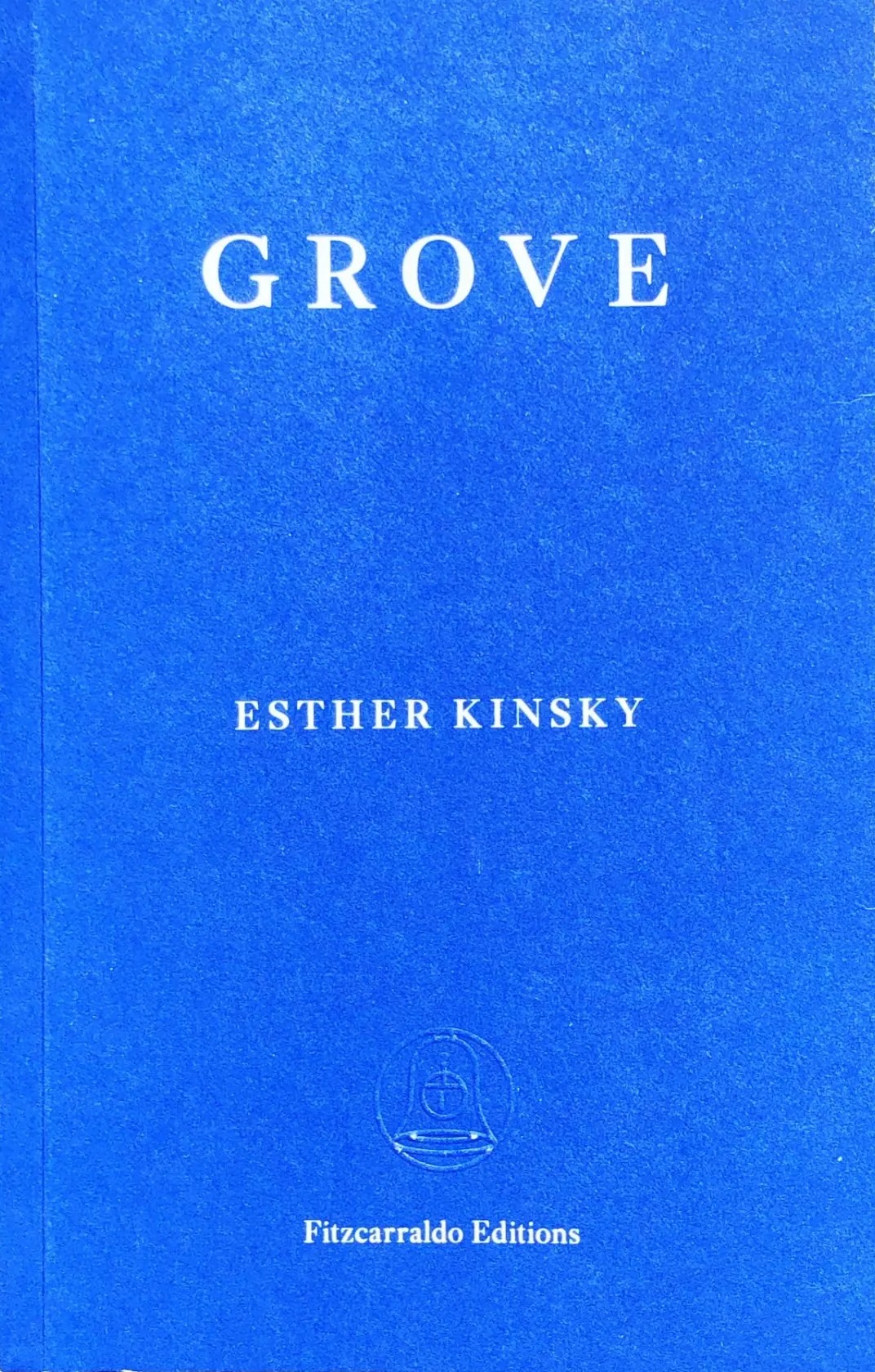
Categorii: Neclasificat, Necatalogate
Limba: Engleza
Data publicării: 2020
Editura: Fitzcarraldo Editions
Tip copertă: Paperback
Nr Pag: 280

An unnamed narrator, recently bereaved, travels to Olevano, a small village south-east of Rome. It is winter, and from her temporary residence on a hill between village and cemetery, she embarks on walks and outings, exploring the banal and the sublime with equal dedication and intensity. Seeing, describing, naming the world around her is her way of redefining her place within it. Written in a rich and poetic style, Grove is an exquisite novel of grief, love and landscapes.
‘What makes Grove so noteworthy is the keening, perfectly weighted clarity of Esther Kinsky’s prose; Caroline Schmidt’s elegantly considered translation is meticulous but never overstated.’
— Lucy Scholes, Financial Times
‘This is a sublime book, born of profound, empathetic understanding.’
— Declan O'Driscoll, Irish Times
‘The language and atmosphere is again redolent of Kinsky’s compatriot WG Sebald, the much-missed psychogeographer. With Grove, she has reached his level. This is a book that finds a kind of comfort in the transience of being human.’
— i
‘Depth of detail is Kinsky’s forte, her language tailored perfectly to a natural world inherent with life and a mystical beauty.’
— Review 31
‘Grove is a realistic and humbling exploration of the all-encompassing nature of bereavement. Kinsky paints a striking picture, aided by Caroline Schmidt’s careful translation.’
— Lunate
‘Deeply sad and darkly beautiful. The novel is masterly and uplifting and without any doubt it offers solace.’
— Jury for the Düsseldorf Literature Prize
‘Like a landscape painter who day after day sets up their easel outside, Esther Kinsky directs her eyes onto the terrain, studies it at particular times and in everchanging weather, and seeks to understand its anatomy as well as the way it is used by people.’
— Frankfurter Allgemeine Sonntagszeitung
‘For it is this ambivalence, this relaxed cleaving asunder, this shimmering multiplicity of meanings, every thing the narrator notes and keeps from her two recent trips to Italy and the memory of countless previous ones with her long-dead father, that gives this book its extraordinary charm.’
— Frankfurter Allgemeine Zeitung
Praise for River
‘A magnificent novel.’
— The New Yorker
‘Esther Kinsky’s unnamed narrator observes and remembers, piling up beautiful, silt-like layers of description and memory until it becomes difficult to know which is which ... This is a book to relish.’
— Guardian
‘The form of River mirrors its content; its consciousness flows with a sense that, like water to the sea, it will one day lose itself. It is appropriately, seamlessly translated by Iain Galbraith.’
— Times Literary Supplement
Esther Kinsky grew up by the river Rhine and lived in London for twelve years. She is the author of six volumes of poetry, four novels (Summer Resort, Banatsko, River, Grove) numerous essays on language, poetry and translation and three children’s books. She has translated many notable English (John Clare, Henry David Thoreau, Iain Sinclair) and Polish (Joanna Bator, Miron Białoszewski, Magdalena Tulli) authors into German. Both River and Grove won numerous literary prizes in Germany.
Caroline Schmidt was born in Princeton. She has translated poetry by Friederike Mayröcker, and art historical essays, museum catalogues and exhibition texts for Albertina in Vienna and Pinakothek der Moderne in Munich, among others. She lives in Berlin.